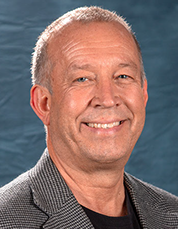Social Justice Discussion Guide
Online education, education that takes place over the internet, in its various models, has been growing steadily over the past decade. As you know, online education is a term that encompasses learning that takes place across distance and not in the traditional brick and mortar classroom. The growth of online education has taken off due to the pandemic and concerns for student safety. However, prior to COVID, online education had been growing steadily across the globe due to a number of factors including a confluence of new technologies, global adoption of the internet, and intensifying demand for a workforce trained periodically for the ever-evolving digital economy. Several studies indicate that online education will become mainstream by 2025.
Currently, the NAD supports and accredits five PK-12 distance education schools/programs across our territory, with an additional school in candidacy status.
What does this mean for Adventist Education? How will this trend impact the quantity and quality of Adventist Education?
The philosophy statement from https://tdec.adventisteducation.org/dl/ is germane to online PK-12 Adventist distance education and reads:
Distance Education Schools
Approved for NAD Organizations
Seventh-day Adventist education is deliberate in providing a Christ-centered curriculum. The policies, standards, and guidelines for distance education courses support this premise. Distance education courses actively engage students in a manner that strengthens their relationship with Christ.
Adventist distance education is student-focused and utilizes principles of best practice. Students are engaged in active learning enabled by instructors who select a variety of appropriate teaching strategies, modes, media, and assessment.
Arne Nielsen, PhD
Vice President of Education
In 2 Timothy 2:2 (NLT), Paul shares his strategy for passing on Bible truths and reads:
“You have heard me teach things that have been confirmed by many reliable witnesses. Now teach these truths to other trustworthy people who will be able to pass them on to others.”
Paul shares that [teachers] are instrumental in passing on truth, and if done correctly, this is done through relationship and discipleship. As we continue moving toward 21st century learning and best practices, we are reminded that educators have the capacity to teach others, utilizing all modalities available to them. As we enter the 2021-2022 school year, may you be encouraged as families search for ways to keep their student(s) in Adventist Education. Virtual learning is one of those ways we can support students and families.
Blessings,
Seventh-day Adventist education is deliberate in providing a
Christ-centered curriculum.
